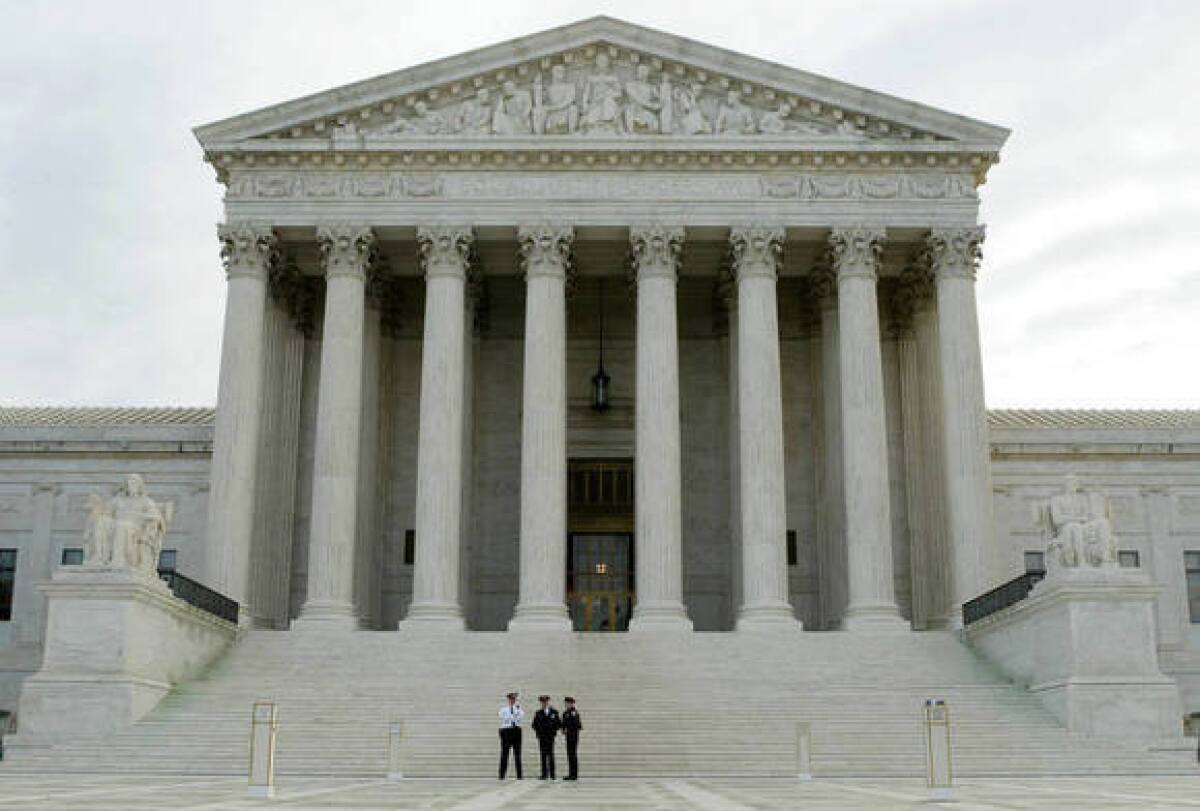Opinion: Texas’ absurd lawsuit to nullify election results in four other states ends with a whimper, not a bang

As predicted, the Supreme Court has rejected the state of Texas’ absurd attempt to overturn Joe Biden’s victory in four states. That’s what matters. But it’s disappointing that the court didn’t subject Texas to the scolding it deserved for wasting the court’s time and attempting to thwart the will of the people.
In rejecting the lawsuit for lack of legal standing, the justices dealt a death blow to what President Trump and his sycophants in Congress hoped would be a judicially administered reversal of the vote in Pennsylvania, Georgia, Michigan and Wisconsin.
Even Justice Samuel A. Alito Jr. and Clarence Thomas didn’t provide the president or his supporters much solace. The two justices are known to believe that the court must entertain lawsuits by one state against another as part of its so-called “original jurisdiction.” Alito, joined by Thomas, indeed expressed that view in a brief statement included in the court’s order.
But Alito added: “I would therefore grant the motion to file the bill of complaint but would not grant other relief, and I express no view on any other issue.”
The danger, of course, is that Trump and his apologists will dismiss the court’s holding as technical. But the important fact is that the justices didn’t take the lawsuit seriously.
“Texas has not demonstrated a judicially cognizable interest in the manner in which another state conducts its elections,” the court declared.
That statement, heavy with legalese, is still a death sentence for the attempt to override the will of the voters. And it must be read in conjunction with lower court decisions that delved into the allegations of widespread voter fraud and still found nothing to substantiate Trump’s conspiracy theories.
Even if the Supreme Court had been more expansive in shutting down this assault on democracy, Trump probably wouldn’t have budged. He is likely to keep complaining even after Monday, when members of the electoral college cast their votes. It’s also doubtful that the 126 Republican House members who signed a brief siding with Texas will now hang their heads in shame, as they should.
We can still wish that the court had accompanied its order with a scolding of the kind suggested by Tom Goldstein in a editorial on SCOTUSblog earlier on Friday headlined: “Don’t just deny Texas’ original action. Decimate it.”
Goldstein wrote:
“Every once in a long while, the court needs to invest some of its accumulated capital in issuing judgments that are not only legally right but also respond to imminent, tangible threats to the nation. That is particularly appropriate when, as here, the court finds itself being used as a tool to actively undermine faith in our democratic institutions — including by the members of the court’s bar on whom the justices depend to act much more responsibly.”
Alas, the justices chose the path of judicial restraint in explaining why they were blocking an assault on democracy. But block it they did.
More to Read
A cure for the common opinion
Get thought-provoking perspectives with our weekly newsletter.
You may occasionally receive promotional content from the Los Angeles Times.











